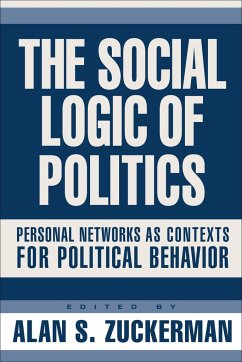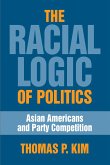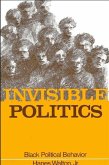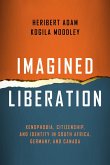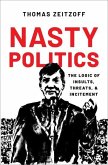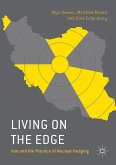Uses classic theories to explain individuals' political decisions to examine what influences these decisions
Using classic theories to explain individuals' political decisions, this volume examines what influences these decisions. Supported by the research of the Columbia school of electoral sociology, this view is contrasted with rational choice theory and the Michigan school of electoral analysis. Written by a range of political scientists, this volume advances theory and method in the study of political behavior and returns the social logic of politics to the heart of political science.
"Overall, this is an important collection of essays...an essential read." Perspectives on Politics
Content:
Preface Introduction: Theoretical and Methodological Context 1. Alan S. Zuckerman, Returning to the Social Logic of Politics. 2. Robert Huckfeldt, Paul Johnson, and John Sprague, Individuals, Dyads and Networks: Autoregressive Patterns of Political Influence. I - Families as Sources of Strong Political Ties 3. Laura Stoker and M. Kent Jennings, Political Similarity and Influence between Husbands and Wives. 4. Alan S. Zuckerman, Jennifer Fitzgerald, and Josip Dasovic, Do Couples Support the same Political Parties? Sometimes. Evidence from British and German Panel Surveys. 5. Sidney Verba, Kay Schlozman, and Nancy Burns, Family Ties: Understanding the Intergenerational Transmission of Political Participation. II Friends, Workmates, Neighbors, and Political Contexts: the effects of weak ties on electoral choices and political participation 6. Ulrich Kohler, Changing Class Locations and Partisanship in Germany. 7. Jeffrey Levine, Choosing Alone? The Social Network Basis of Modern Political Choice.8. Laurence Kotler-Berkowitz, Friends and Politics: Linking Friendship Diversity to Political Participation. 9. Ann Chih Lin, Networks, Gender and the Use of State Authority: Evidence from a Study of Arab Immigrants in Detroit. 10. Ron Johnston and Charles Pattie, Putting Voters in their Places: Local Context and Voting in England and Wales, 1997. 11. James Gimpel, and J. Celeste Lay, Party Identification, Local Partisan Contexts and the Acquisition of Participatory Attitudes. 12. Christopher Anderson and Aida Paskeviciute, Macro-Politics and Micro-Behavior: Mainstream Politics and the Frequency of Political Discussion in Contemporary Democracies. III. The Social Logic of Politics: Looking Ahead 13. Paul Johnson and Robert Huckfeldt, Agent-Based Explanations for the Survival of Disagreement in Social Networks. 14. James Fowler, Turnout in a Small World.
Using classic theories to explain individuals' political decisions, this volume examines what influences these decisions. Supported by the research of the Columbia school of electoral sociology, this view is contrasted with rational choice theory and the Michigan school of electoral analysis. Written by a range of political scientists, this volume advances theory and method in the study of political behavior and returns the social logic of politics to the heart of political science.
"Overall, this is an important collection of essays...an essential read." Perspectives on Politics
Content:
Preface Introduction: Theoretical and Methodological Context 1. Alan S. Zuckerman, Returning to the Social Logic of Politics. 2. Robert Huckfeldt, Paul Johnson, and John Sprague, Individuals, Dyads and Networks: Autoregressive Patterns of Political Influence. I - Families as Sources of Strong Political Ties 3. Laura Stoker and M. Kent Jennings, Political Similarity and Influence between Husbands and Wives. 4. Alan S. Zuckerman, Jennifer Fitzgerald, and Josip Dasovic, Do Couples Support the same Political Parties? Sometimes. Evidence from British and German Panel Surveys. 5. Sidney Verba, Kay Schlozman, and Nancy Burns, Family Ties: Understanding the Intergenerational Transmission of Political Participation. II Friends, Workmates, Neighbors, and Political Contexts: the effects of weak ties on electoral choices and political participation 6. Ulrich Kohler, Changing Class Locations and Partisanship in Germany. 7. Jeffrey Levine, Choosing Alone? The Social Network Basis of Modern Political Choice.8. Laurence Kotler-Berkowitz, Friends and Politics: Linking Friendship Diversity to Political Participation. 9. Ann Chih Lin, Networks, Gender and the Use of State Authority: Evidence from a Study of Arab Immigrants in Detroit. 10. Ron Johnston and Charles Pattie, Putting Voters in their Places: Local Context and Voting in England and Wales, 1997. 11. James Gimpel, and J. Celeste Lay, Party Identification, Local Partisan Contexts and the Acquisition of Participatory Attitudes. 12. Christopher Anderson and Aida Paskeviciute, Macro-Politics and Micro-Behavior: Mainstream Politics and the Frequency of Political Discussion in Contemporary Democracies. III. The Social Logic of Politics: Looking Ahead 13. Paul Johnson and Robert Huckfeldt, Agent-Based Explanations for the Survival of Disagreement in Social Networks. 14. James Fowler, Turnout in a Small World.
